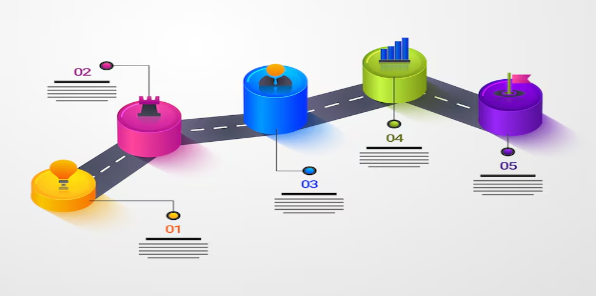A Beginner’s Guide to Web Designing Courses in Chennai
A Beginner’s Guide to Web Designing Courses in Chennai Are you passionate about creating stunning websites and bringing digital dreams to life? If you’re looking to start a career in web design, Chennai offers a plethora of opportunities. In this beginner’s guide, we’ll explore everything you need to know about web designing courses in Chennai. Whether you’re a novice or looking to enhance your skills, this guide will help you find the perfect course to kick-start your journey in the world of web design. Why Choose a Web Designing Course in Chennai? What to Expect from a Web Designing Course? The Pros and Cons of Signing Up for a Web Design Course Why Choose a Web Designing Course in Chennai? Chennai, known for its booming IT industry and educational institutions, is an excellent place to learn web design. The city offers a range of courses that cater to different skill levels, from beginner to advanced. Here are some reasons why you should consider a web designing course in Chennai 1. High Demand for Web Designers: With the rapid growth of online businesses, the demand for skilled web designers is on the rise. A web designing course can open doors to various job opportunities in top IT companies. 2. Comprehensive Curriculum: Courses in Chennai cover a wide range of topics, including HTML, CSS, JavaScript, and popular design tools like Adobe Photoshop and Illustrator. 3. Experienced Instructors: Many institutes in Chennai have experienced faculty who provide hands-on training and real-world insights. 4. Affordable Fees: Compared to other metropolitan cities, Chennai offers quality education at a relatively lower cost. What to Expect from a Web Designing Course? When you enroll in a web designing course in Chennai, you can expect to learn the following: 1. Basic Web Designing Principles: Understand the fundamentals of web design, including layout, color theory, typography, and user experience (UX) design. 2. HTML and CSS: Learn to create and style web pages using HTML (Hypertext Markup Language) and CSS (Cascading Style Sheets). 3. JavaScript: Get introduced to JavaScript, a powerful scripting language used to create interactive and dynamic web pages. 4. Design Tools: Gain proficiency in design tools like Adobe Photoshop, Illustrator, and Sketch to create stunning graphics and layouts. 5. Responsive Design: Learn to design websites that look great on all devices, from desktops to smartphones. 6. Project Work: Most courses include practical projects where you can apply your skills to create real-world websites. The Pros and Cons of Signing Up for a Web Design Course Enrolling in a web designing course in Chennai can offer numerous benefits: 1. Skill Enhancement: Gain in-depth knowledge and practical skills that are essential for a successful web design career. 2. Career Opportunities: Open up a wide range of job opportunities in web design, graphic design, and front-end development. 3. Freelancing: With the skills acquired, you can also work as a freelance web designer and take on projects from clients around the world. 4. Creativity: Web designing allows you to express your creativity and bring your ideas to life through visually appealing websites. Conclusion A web designing course in Chennai is a stepping stone to a rewarding career in the digital world. With the right training and guidance, you can master the art of web design and create websites that stand out. Whether you’re looking to work for top companies or start your own freelance business, Chennai has the resources and opportunities to help you succeed. Explore the web designing courses offered by Login360 and embark on your journey to becoming a proficient web designer. With dedication and the right training, you’ll be well on your way to creating beautiful, functional websites. By following this guide, you’ll be well-equipped to choose the best web designing course in Chennai and start your career in the exciting field of web design. Happy learning!,
A Beginner’s Guide to Web Designing Courses in Chennai Read More »










